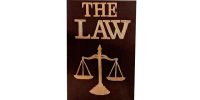
How does Probate Attorney help in probate?
What is a Probate Attorney? Probate is administering a decedent’s estate according to their will or under state guidelines. A probate lawyer is a state-approved
Home » Estate Planning » Page 4

What is a Probate Attorney? Probate is administering a decedent’s estate according to their will or under state guidelines. A probate lawyer is a state-approved

A probate process helps in the rightful possession of a will. A probate court, which has the legal authority to resolve issues relating to wills

The legal procedure that follows a decedent’s death is referred to as probate. It establishes the distribution of the decedent’s estate. However, the probate inventory

Understanding the probate lawyer: A probate lawyer is a state-licensed attorney who works with the executors and the beneficiaries of an estate to settle the

It’s a callous decision for many couples to decide how to split up the family’s finances. But it’s not always easy to leave money for

What is Trust? A trust is a legal arrangement governing the transfer of assets from an owner known as the grantor or trustee. They set

What Is Probate Probate is a legal procedure through which assets are passed legally. Moreover, the probate process is considered to be problematic in the

Estate planning is the preparation of an official document. It states who will handle and own an individual’s assets after death or incapacitation. It involves

It is important to note that the beneficiary of the trust may not be happy with the money withdrawn from the trust account, and do

A person is considered to have died intestate if they pass away without leaving a will; in this case, their assets, including their bank accounts,

Medical Power of Attorney A healthcare proxy or medical power of attorney appoints a person to make medical decisions on your behalf if you become

Estate planning is deciding who will get your possessions after your death. With a focus on minimizing taxes, your beneficiaries can keep more of your

Introduction The United States has more immigrants than any other country in the world. With more than 45 million living inside its borders. While many

Meaning of probate How does probate work? Probate is the examination and moves organization of domain resources recently possessed by a departed individual. At the

There are procedures for removing or changing a trustee if you are the creator, a co-trustee, or a beneficiary of a family trust and believe

A will is a written document that specifies how one should divide and dispose of their property after passing away. A person creates a choice

An Estate of a person includes everything he owns. From one’s home to vehicles, bank accounts, insurance, financial investments, properties, and other personal belongings. Who’ll

Estate Planning is planning for the future today. It is your ability to take control of future decisions and empower others to assist you with

Family, friends, and loved ones go through a sad and trying time when a loved one passes away. Additionally, those left behind frequently have to

A probate attorney is one of the most influential people you will need to contact when dealing with a loved one’s estate. The probate process

There is a widespread misunderstanding regarding wills, estate handling, and the probate procedure. Many individuals believe that a will must always go through the probate

Estate planning is essential to everyone. We all have to think about what will happen when we die. It is necessary to decide who will

What is a Probate? The Latin verb “probate” means to test or scrutinize, while the English word “probate” implies “to prove.” The executor of the

A lot of people are more interested in planning their vacation trips rather than estate planning. They think that estate planning is only for the

Introduction The term Probate Attorney refers to a probate lawyer. They help non-legal counselor clients to satisfy their responsibility as administrators, individual representatives, or executors

Lawyers usually use one of three methods to calculate probate jobs. Hourly, flat rate, or percentage of the value of a real estate asset. Attorneys

As you get older, there’s a considerable possibility you’ll need long-term care facilities that estate lawyers provide. According to the Department of Health and Human

What is a living trust? A living trust is a fund that holds your assets while you are still alive. This term usually refers to

When a lawyer’s license is canceled, the lawyer has been found guilty of a crime, fraud, or moral turpitude. A court may revoke a lawyer’s